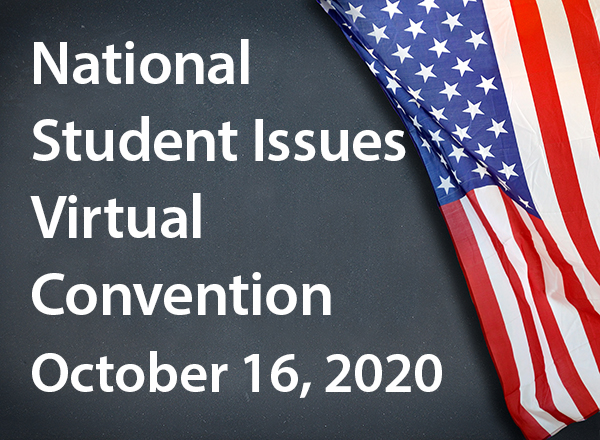Oct. 16 Student Issues Convention will welcome voices from across the nation

T he 17th Annual Michigan Student Political Issues Convention, which is usually held at HFC, will be accessible on a national platform via Zoom on Friday, Oct. 16, from 1:00 to 4:00 p.m. EST (noon to 3:00 p.m. CST) as the National Student Issues Virtual Convention.
HFC and the University of Illinois at Chicago are coordinating the event. The Student Learn Students Vote (SLSV) Grant that was recently awarded to HFC is helping fund the convention.
Other co-hosts and collaborators include:
- U.S. Representative Debbie Dingell, who will speak to the students.
- Democratic Institute Consortium – HFC
- Wayne State University Center for Peace and Conflict Studies
- University of Michigan-Dearborn (UM-Dearborn)
- Oakland Community College (OCC)
- League of Women Voters (LWV) of Dearborn-Dearborn Heights
- Michigan Democracy Institute for Civic Engagement(M-DICE)
Fostering a stronger, more vibrant democratic society
This convention will bring together college and high school students from more than half a dozen states – Michigan, Illinois, Ohio, Pennsylvania, New Jersey, California, North Carolina, West Virginia, and Texas – to discuss, debate, and vote on what issues they deem the most pressing concerns for our elected officials to address, with special relevance to the upcoming presidential election. The convention is non-partisan, but representatives from both the Trump and Biden political campaigns have been invited to attend.
“HFC has hosted this political issues convention since 2004,” said Dr. Anthony D. Perry, HFC political science professor and convention coordinator. “This continues as higher education institutions are instrumental in providing citizens with experiences essential for empowering the next generation of Americans with the essential tools to foster a stronger, more vibrant democratic society that represents all citizens.”
Non-partisan convention divided into 4 parts
This convention is non-partisan and does not include lobbying or information about politicians or campaigns. It gives students a venue to share what issues they think candidates for office should make a priority. The event is designed to provide a deliberative space to develop a student agenda and to have candidates and public officials respond to student concerns.
The convention is divided into four parts:
1. Students meet in small groups to discuss the most important items for a Student Issues Agenda.
2. A plenary of all students vote on five items based upon small group reports.
3. Candidates and public officials respond to the issue agenda presented by students to them.
4. After the convention students on each campus mobilize to register students to vote, turn out the vote, and meet with public officials to push for solutions to the problems highlighted in the agenda.
“The purpose of this convention is to get younger Americans to better understand their democratic responsibilities, including voting,” said Perry.
For questions or more information about this free convention, contact Perry at adperry1@hfcc.edu.